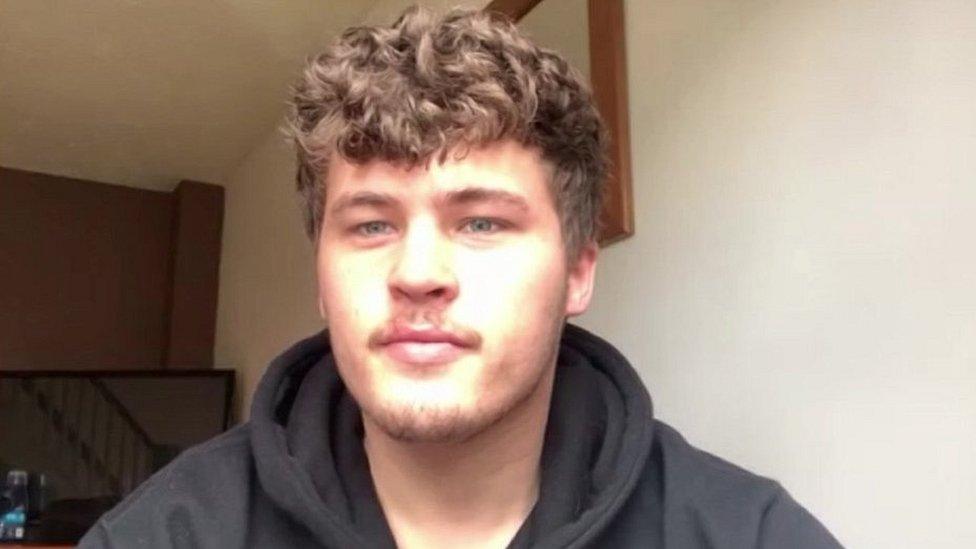Klarna shopping habits will affect credit report
- Published

Buy-now-pay-later firm Klarna will start telling credit agencies who pays on time and who falls behind.
The firm said the move could help or hinder its customers' ability to get credit for loans such as mortgages.
From June, banks and credit card firms will be able to see people's Klarna habits when making credit checks.
Citizens Advice said buy-now-pay-later "can be like quicksand - easy to get into but difficult to get out of" amid fears it encourages people into debt.
Klarna, the biggest buy-now-pay-later company in the UK, lets customers buy from retailers including Boohoo, H&M and Asos.
It will start sharing customers' payment histories with credit reference agencies from 1 June.
The Swedish firm already shares information with credit reference agencies when customers use Klarna Financing for longer term loans.
But from next month it will also share customer data for its Pay in 3 (instalments) and Pay in 30 (days) products.
Debt risk
Matthew Upton, director of policy at Citizens Advice, said buy-now-pay-later "lures shoppers in with split payments at the checkout".
"Too often consumers don't understand what they're signing up for and we've found people who've used it accidentally," he said.
Last year, the Citizens Advice charity said one in 10 shoppers who use buy-now-pay-later credit end up being pursued by debt collectors.
At the moment, Klarna customers who fall behind on payments could be pursued by debt collection agencies, but the firm said this does not affect how easy it is to get credit. However, this will change from 1 June.


For shoppers, buy-now-pay-later seems to be everywhere. It has been used by 17 million people in the UK, including 30% of those aged in their 20s, but it has never been the most visible of credit products.
Consumer groups say BNPL can create a slippery slope to unmanageable debt which is largely hidden, to all but those getting into a financial mess.
So this move by Klarna is significant, albeit one that the company was forced into with stricter regulation on the horizon. Expect other providers to follow suit.
It will test the claim by BNPL providers that their customers are almost always able to keep to the "pay later" part of the deal.
What may be even more interesting to watch is the response of other lenders.
Will they consider applicants' use of BNPL products as a sign of financial stress and be more reluctant to provide loans and mortgages to them?
Or will they decide that use and prompt repayment of BNPL is a positive signal of a responsible borrower?

Buy-now-pay-later firms have been under pressure from watchdogs over contract terms and conditions and they information they give to credit agencies.
Klarna said it had been working with the agencies for two years so they could adapt reporting systems which are set up for credit card companies.
Borrowing levels
The Klarna announcement was made as official figures revealed that UK consumers had borrowed £800m more in March on credit cards.
This marked a rise of more than 10% compared to a year earlier, data from the Bank of England showed.
However, the increase in credit card borrowing, alongside a rise in the use of other loans too, puts borrowing back to levels seen before the pandemic.
Repayments massively outstripped new borrowing during Covid lockdowns when cardholders had much less opportunity to go out and spend money.
Related topics
- Published3 September 2021
